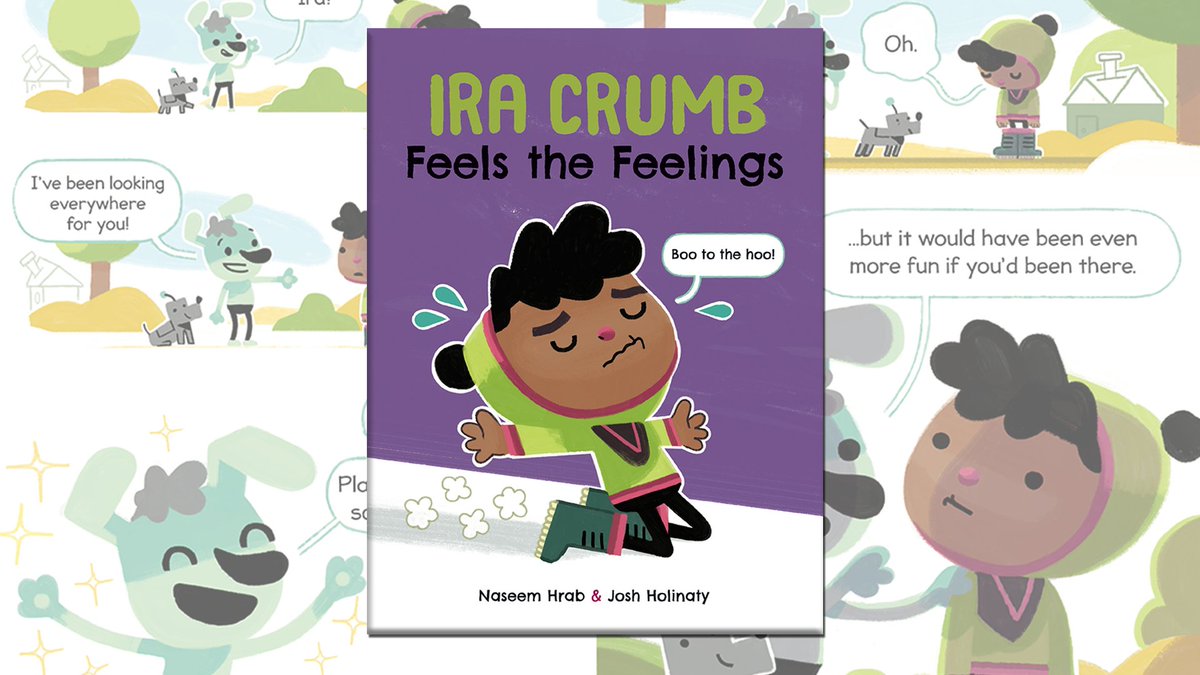Moving On and Holding On: Writing Picture Books as Therapy
By Naseem Hrab
Is it just me or is closure overrated and nearly impossible to achieve? It sometimes feels like the more you try to shut out painful experiences, the more they wave their hands around and yell, “Look over here!” I know dwelling and getting stuck are real concerns—you wouldn’t want to live in the past. But what if it was possible to give your sadness, grief or, really, any profoundly emotional experience you’ve had the attention it needs and then hold on to what’s worth keeping and move on from what’s not? Your old pal Naseem has the answer for you: Turn your sad experiences into picture book manuscripts.
I know what you’re thinking, “Naseem! Think of the children! They don’t want to read all about my mucky bits.” And you’re right—they don’t! But, we’re not talking about the children right now, we’re just talking about you. And for many reasons, picture book manuscripts are the perfect vessels for your sad experiences.
1) They’re short and require you to distill your emotions. To make a 500-word-picture book work, you’ll really have to hone in on how you feel about the experience. This also means that you can work through hard moments as they crop up instead of rushing through a lifetime of tragedies on your deathbed.
2) You get the chance to sit with your inner child and try understand them (and kindly tell them to grow up, if need be). Because you’re focusing on one experience, you can really think about your reactions, responses and emotions towards it.
3) You can try to see the experience from all angles and perspectives to find some distance: Sure, you can write about that time your dad left your family when you were nine-years-old from your perspective, but what does your mother, brother or goldfish think about the whole sordid thing?
4) While picture book manuscripts can be sad, they must be hopeful. The storytelling process will encourage you to reevaluate your conclusions and force you to find hope somewhere in there.
5) Putting words to paper is healing. Full stop. And if your picture book manuscript does get acquired by a publisher, you will continue to find distance from the situation: The editorial process has the potential to turn your sharp, jagged memories into smooth sea glass.
Case study in point: When I was around nine-years-old, my dad exited my life for over ten years. I never really spent time thinking about it as a child because the rest of my life felt so whole thanks to my mother and my brothers … and I’m also very good at both disassociation and denial. As an adult, I’m still not sure what to take away from the whole experience (I’m not sure I’ll ever figure that out), but the thing that stands out to me the most is that you won’t always get the answers you’re looking for in life. And even if you do get answers, they may not feel very satisfying. What could my father have possibly said to me to reassure me about his absence?
I wrote about my emotions towards this experience in my forthcoming picture book Weekend Dad (Groundwood Books, Spring 2020). Through the eyes (and distance) of a little boy, I captured my core feelings: I was scared of the change that occurred after my parents got divorced; I missed my dad; and I realized that he wasn’t capable of taking care of my brothers and me let alone himself.
Your CanLit News
Subscribe to Open Book’s newsletter to get local book events, literary content, writing tips, and more in your inbox
As I worked with my editor on this manuscript, I let go and moved on: the readers’ experience became more important and my experience became secondary. The story took on a shape of its own—my sharp edges started getting smoother. By the time the final manuscript went to the illustrator of the book, I had to let go once again: It went from being my story to our story. And once the book is printed and published and strangers start to read it, it will become less and less a part of me.
Once the book is finally in my hands, I won’t have closure, but I will be holding on to what will, hopefully, feel like a piece of sea glass.
The views expressed by Open Book columnists are those held by the authors and do not necessarily reflect the views of Open Book.
Naseem Hrab is the author of the picture books Ira Crumb Makes a Pretty Good Friend and Ira Crumb Feels the Feelings, illustrated by Josh Holinaty. Her comedy writing has appeared on McSweeney's Internet Tendency and The Rumpus. Sometimes Naseem likes to get up on a stage and tell true stories. She loves improv and coffee ice cream.
She worked as a librarian for a time and currently works in children's publishing.





